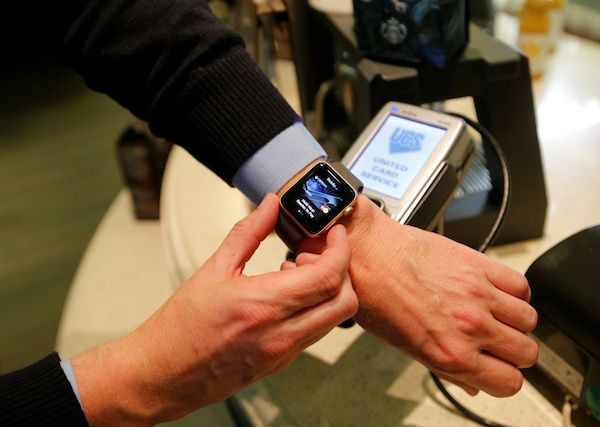Report: Apple Meets Aetna Insurance To Push Smart Watch Coverage

Apple has long been aggressive about expanding into the public health space and its latest partner may be one of the bigger players in the health insurance marketplace.
Apple and insurance provider Aetna have been in discussions about bringing free or discounted Apple Watches to its 23 million subscribers, according to CNBC. Last week, Apple and officials from Aetna and other hospitals met to discuss a potential partnership. Aetna currently offers an Apple Watch to its employees as part of its internal wellness program.
If the partnership works out, it would be a coup for Apple and its wearables division. So far, the Watch still been a steady performer for Apple and the product family recently saw the release of the Series 2 update last fall.
But although CEO Tim Cook touted that sales for the Watch jumped 50 percent in an earnings call earlier this month, wearables aren’t as big as other consumer electronics markets and the Apple Watch’s sales have been accordingly modest.
According to a report from research firm Strategy Analytics, Apple had shipped 3.5 million Watches for the first quarter of 2017, up from 2.2 million units in 2016. However, the release of the Series 2 and declines from competitors allowed Apple to slot in as the new market leader in the wearables space. In total, manufacturers shipped an estimated 22 million units for the quarter.
Consumer trends have also played a role in the wearables market’s current state. While the market has long been dominated by Fitbit, saturation among users and increased competition have caused the company to hit road bumps in recent months. Earlier this year, the company announced a wave of layoffs amid continuing development on its own long-rumored smartwatch.
However, Apple has banked heavily on enhanced health and fitness features as a way to reverse this backslide. Along with improved fitness and workout features, Apple is rumored to be developing sensors that could detect blood sugar levels without needing a traditional needle and blood draw. Beyond health-specific features, the potential Series 3 is also expected to feature a revamped layout and could potentially include cellular data connectivity to make it not require a paired iPhone. Apple has also made similar inroads with personal health on iPhones through various iOS-native apps.
For health insurers, which have frequently featured deals with companies like Fitbit for free or subsidized, the partnership also has similar benefits. Free hardware like a wearable can help encourage members to regularly go outside and work out, which also has a secondary benefit in lowering costs for insurance companies. Likewise, Apple could see an immediate benefit from partnering with Aetna, as its install base for the Watch could increase exponentially virtually overnight.
© Copyright IBTimes 2024. All rights reserved.





















